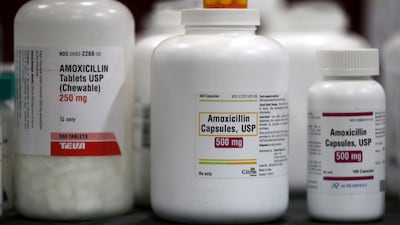At least 750,000 deaths each year caused by antimicrobial resistance (AMR) could be avoided with better hygiene, clean water and antibiotics, research published in the Lancet has shown.
Each year, an estimated 7.7 million deaths globally are caused by bacterial infections, making them the second largest cause of death globally.
Out of these bacterial infection deaths, almost five million are associated with drug resistance.
Experts have warned that if the world does not prioritise action on drug-resistance bacteria then deaths will increase.
Young infants, elderly people and people with chronic illnesses or requiring surgical procedures are at the highest risk of dying.
“Effective antibiotics prolong lives, reduce disabilities, limit healthcare costs and enable other life-saving medical actions such as surgery,” series co-author, Iruka Okeke of the University of Ibadan, Nigeria, said.
“However, antimicrobial resistance is on the rise – accelerated by inappropriate use of antibiotics during the Covid-19 pandemic – threatening the backbone of modern medicine and already leading to deaths and disease which would have once been prevented.”
Models in the latest publication estimates existing infection prevention methods could prevent 750,000 deaths associated with AMR infections a year.
The study says improving infection prevention and control in healthcare facilities, including better hand hygiene and more regular cleaning and sterilisation of equipment, could save up to 337,000 lives a year.
Universal access to safe drinking water and effective sanitation in community settings could also prevent about 247,800 deaths annually.
Vaccines that help protect against pneumonia and meningitis, and introducing new ones, such as RSV vaccines for pregnant mothers, could save 181,500 lives a year.
Reducing the use antibiotics in cases where they are not needed could also slow bacteria's ability develop resistance, however there is a lack of research in this area.
The study also called for global targets called “10-20-30 by 2030” goals.
These goals want a 10 per cent reduction in mortality from AMR relative to 2019, a 20 per cent reduction in inappropriate human antibiotic use and a 30 per cent reduction in inappropriate animal antibiotic use.
“Our findings highlight how public health actions to prevent infections in the first place should be prioritised as a strategy to tackle AMR as these methods have the potential to drastically reduce the number of deaths from AMR-associated infections,” said co-author Yewande Alimi of Africa CDC.
“If we can focus on improving infection control methods, water and sanitation and vaccination in LMICs [low- and middle-income countries] then it should be possible to reduce the number of deaths linked with AMR by 10 per cent by 2030.”


